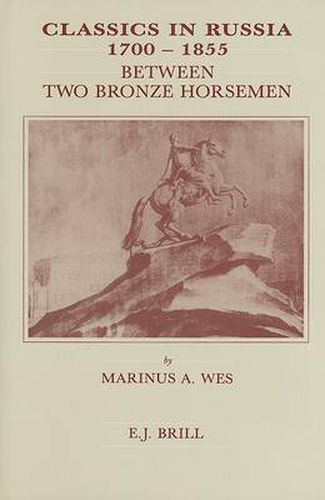Readings Newsletter
Become a Readings Member to make your shopping experience even easier.
Sign in or sign up for free!
You’re not far away from qualifying for FREE standard shipping within Australia
You’ve qualified for FREE standard shipping within Australia
The cart is loading…






This work shows how the history of the classical tradition in Russia cannot be separated from the history of Russia’s orientation to Western Europe in general. Based on many little-known and previously unexplored Russian materials, it is the result of a comprehensive research on the study of the Greek and Roman classics in Russia, and its sociocultural - utopian as well as ideological - function within the framework of Russian cultural and intellectual history and Russian educational policy from the accession of Peter the Great to the death of Nicholas I. A tradition does not exist apart from the people who adhere to it and the networks they create in order to ensure some kind of growth and continuity. Therefore, the author has ordered his material into an interpretive framework based on a prosopographical approach towards the subject. Among specific writers and poets discussed are Pushkin, Gogol, Goncharov and Turgenev.
$9.00 standard shipping within Australia
FREE standard shipping within Australia for orders over $100.00
Express & International shipping calculated at checkout
This work shows how the history of the classical tradition in Russia cannot be separated from the history of Russia’s orientation to Western Europe in general. Based on many little-known and previously unexplored Russian materials, it is the result of a comprehensive research on the study of the Greek and Roman classics in Russia, and its sociocultural - utopian as well as ideological - function within the framework of Russian cultural and intellectual history and Russian educational policy from the accession of Peter the Great to the death of Nicholas I. A tradition does not exist apart from the people who adhere to it and the networks they create in order to ensure some kind of growth and continuity. Therefore, the author has ordered his material into an interpretive framework based on a prosopographical approach towards the subject. Among specific writers and poets discussed are Pushkin, Gogol, Goncharov and Turgenev.